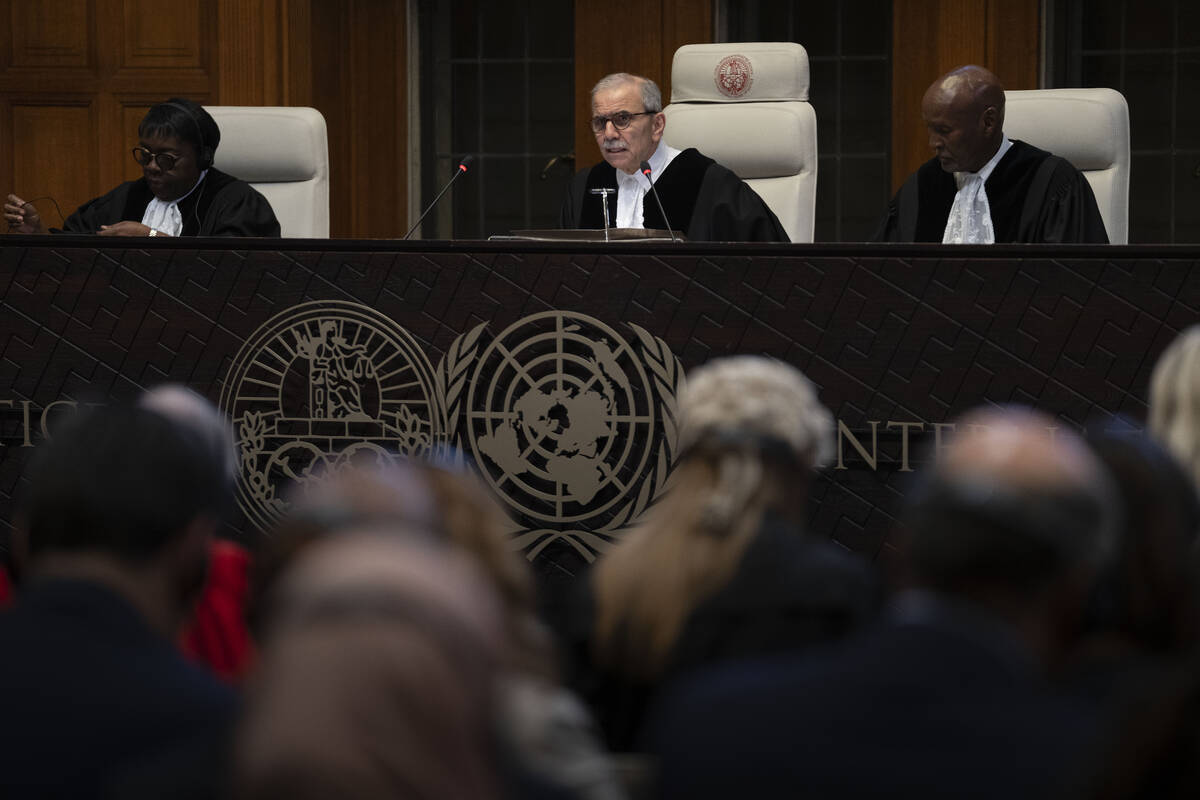UN court order demanding that Israel halt its Gaza offensive further isolates the US position

WASHINGTON — A U.N. court’s order that Israel halt its offensive in the southern Gaza city of Rafah has deepened a disconnect with the United States over a military operation that faces mounting international condemnation but that American officials describe as limited and targeted.
The decision Friday by the International Court of Justice in The Hague adds to the pressure facing Israel, coming just days after Norway, Ireland and Spain said they would recognize a Palestinian state, and the chief prosecutor of a separate international court sought arrest warrants for Israeli Prime Minister Benjamin Netanyahu as well as terrorist leaders of Hamas.
The Biden administration stands apart from the global community, though it is opposed to a major offensive in Rafah. The administration also insists that the steps its close ally Israel has taken so far have not crossed red lines.
Administration officials have appeared determined to press on with military and political support for Israel following the deadly Hamas terrorist attack it endured last October, while also pressuring its ally to avoid a full-scale military operation in densely populated Rafah.
“What we have seen so far in terms of Israel’s military operations in that area has been more targeted and limited, has not involved major military operations into the heart of dense urban areas,” national security adviser Jake Sullivan told reporters at a White House briefing this week.
But, he added, “We now have to see what unfolds from here.”
A State Department official, speaking on condition of anonymity to describe the administration’s internal assessment of the situation, said the operation in Gaza had “not yet moved into the core heart of Rafah that gets us to the densest of dense areas.”
Earlier this month, the White House announced it was pausing a shipment of some 3,500 bombs, including massive 2,000-pound explosives that the Biden administration said were leading to civilian deaths. President Joe Biden warned during a CNN interview that “if they go into Rafah, I’m not supplying the weapons that have been used historically to deal with Rafah.”
But the tone at the White House seemed to take a notable shift this week after Sullivan returned from a visit to Israel, where he said he had been briefed on “refinements” in the Israeli plan to root out Hamas in Rafah, and to Saudi Arabia.
During Sullivan’s talks with Netanyahu and other officials during the trip, the Israeli side addressed many of Biden’s concerns about its plans for Rafah, according to a senior administration official who requested anonymity to discuss the sensitive matter.
The official said the administration stopped short of greenlighting the Israeli plan but Israeli officials’ altered planning suggested they were taking Biden’s concerns seriously.
Secretary of State Antony Blinken reiterated that the administration does not believe a major offensive would achieve the results that Israel is looking to achieve, “which is to deal effectively and durably with Hamas.”
“Our concerns about a full-on military assault in Rafah remain,” he said. “We have other ways of dealing with the challenge posed by Hamas that we believe can be more effective and more durable.”